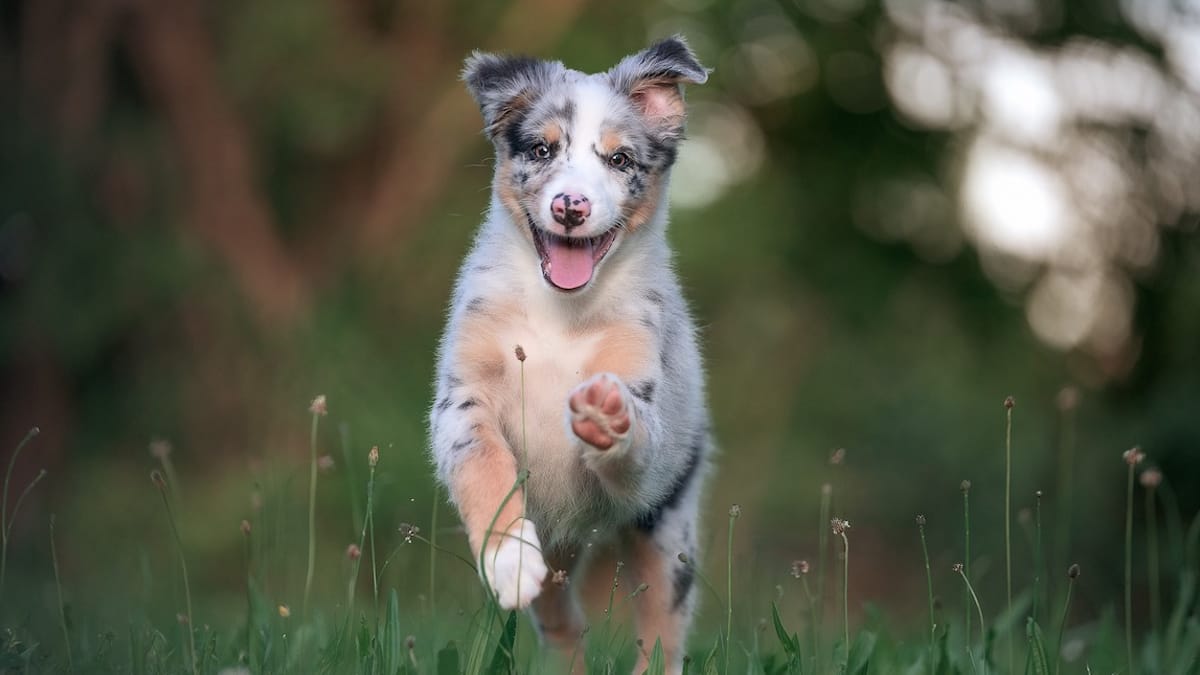A new friend to grow up has arrived in the house and his irrepressible joie de vivre invades every corner of the apartment. All this is very beautiful.
A dog, especially if he enters the house from a young age, is a real hurricane that fills the day. But is there a time when this ardor subsides? When puppies calm down? Let’s find out together!
What is the age of a puppy dog?
A dog is considered a puppy until it reaches adulthood. This moment varies depending on the breed and size of the dog.
Naturally, this is a general rule that varies, however, also according to the puppy, since each specimen develops in a different way also depending on the environment in which it grows. Maturity is mainly in the physical, since Fido’s character and his personality depend not only on genetics (therefore on race), also on his education and living conditions.
When does a dog become an adult?
In general, we can say that a puppy becomes an adult at the following ages:
On average, it is considered that an adult dog is between 9 months and two years old.
At what age do puppies calm down?
As a rule, at the time of the transition from puppy to adult, the animal calms down. His upbringing is structured, as are his habits. The specimen has understood how to behave, although this can vary according to the breed.
Beyond the general information on the breeds and sizes of dogs, it is important to observe the animal, since each specimen is unique. Two elements in particular will help to know his level of maturity:
- Its dimensions: an adult dog is a dog that has “finished growing”;
- His behavior: even the young dog goes through a phase of “rebellion” which corresponds to adolescence in humans. Once this phase has passed, the dog can be considered as an adult.
How to calm down a hyperactive puppy or adult?
Puppies are more (positively) agitated by nature. Their education is not yet complete and their explosive vitality has not yet been channeled.
An agitated adult dog can actually be agitated for good reasons, but usually it’s a brief moment of response to an event (for example, Fido is excited when we come home after a day’s work).
If adult agitation persists, your pet may need to be closely monitored. In this case, the help of an educator can be very useful.
Animal under stress
If the puppy is agitated because he is afraid or is in a moment of stress, it is necessary to understand the source of the problem and eliminate it at the base. If the agitation, on the other hand, is due to too much exuberance, it is necessary to intervene to make him understand that exuberant behaviors are not welcome. It is an essential moment of education.
In this case it is possible to implement three attitudes that are equivalent to an indirect positive reinforcement:
- Do not talk;
- Do not look;
- Don’t touch the dog.
It is a constant exercise that must be put into practice whenever the animal has a wrong attitude. Ignoring him will allow him to understand that the attitude put in place will not get the attention he wants.
Animal full of energy
Exercise and mental stimulation are great ways to calm a restless dog. Indeed, it is probable that the animal gets agitated because it is full of energy!
Whether it’s a walk in the woods, a game of fetch, training exercises or a morning run, the choice is yours! The important thing is to give the dog plenty of opportunities to exercise and get tired to channel his energy, especially if he is young.
Attention: When playing, don’t let the dog get the upper hand, as this could make him agitate even more. Take advantage of these moments of complicity to show your pet that it must obey you. All always with firmness and kindness!
What if Fido has behavioral problems?
If the dog is often unruly, you have to ask yourself what are the causes of this behavior. There may be behavioral or training problems (anxiety, stress, lack of basic training).
It can also be due to certain pathologies (depression, thyroid problems, etc.). Quickly consult your vet to identify the causes of this excessive activity, in order to offer your pet the right remedy.

